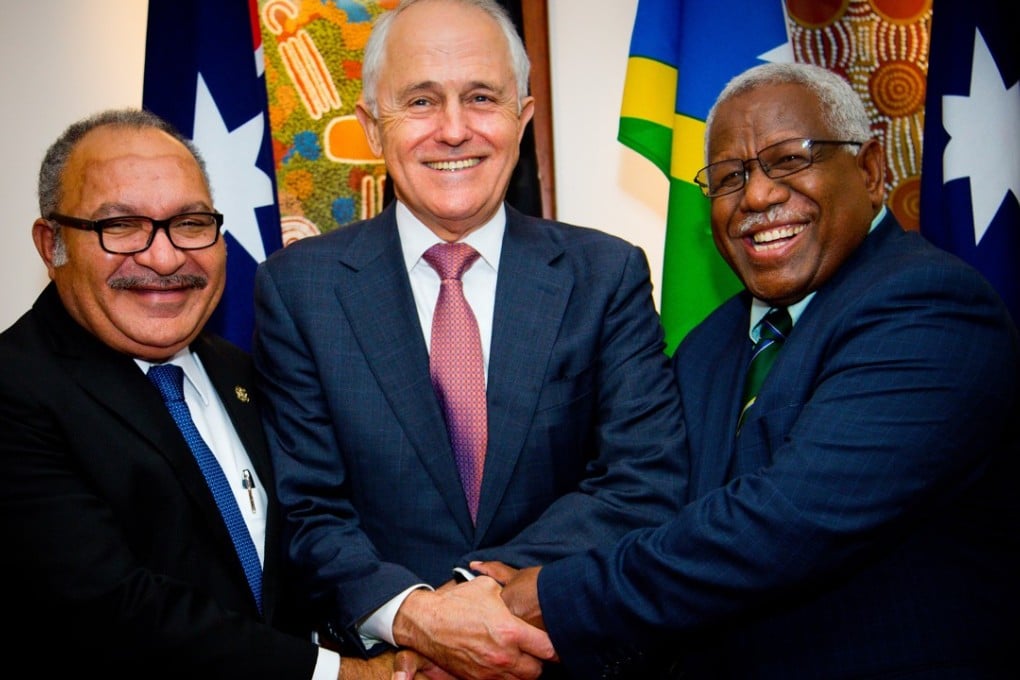China: the real reason Australia’s pumping cash into the Pacific?
Good news for Pacific islanders – as Beijing and Canberra struggle for influence, billions of dollars are heading your way

When the leaders of Australia, Papua New Guinea and the Solomon Islands this month signed off on a deal to link the three countries via an undersea internet cable, Canberra positioned itself as a thoughtful neighbour, eager to help developing nations in its own backyard.
“We spend billions of dollars a year on foreign aid and this is a very practical way of investing in the future economic growth of our neighbours in the Pacific,” said Australian Prime Minister Malcolm Turnbull, whose country is spending A$137 million dollars – two-thirds of the project’s cost – to give the two countries access to reliable high-speed internet services for the first time.
But what Turnbull did not mention at the signing ceremony in Brisbane on July 11, when he was flanked by Solomon Islands Prime Minister Rick Houenipwela and Papua New Guinea Prime Minister Peter O’Neill, was that Australia has another, arguably deeper motivation for taking on the project: countering China’s growing influence in the region.
China, Australia kiss and make up but things will never be the same
“The Pacific is of critical strategic importance for Australia,” Jonathan Pryke, the director of the Lowy Institute’s Pacific Islands Programme, told This Week in Asia. “Geographically, we are wedded to the region.”
In recent years, China has showered small Pacific nations such as Vanuatu, Tonga and the Solomon Islands with aid and concessional loans for infrastructure such as roads, ports and government buildings. The Sydney-based Lowy Institute estimates Beijing transferred more than US$1.7 billion to the region via its opaque foreign aid programme between 2006 and 2016.

Australian officials, usually obliged to adopt a diplomatic touch with China, the country’s biggest trade partner, have increasingly made their displeasure with the shifting status quo clear.